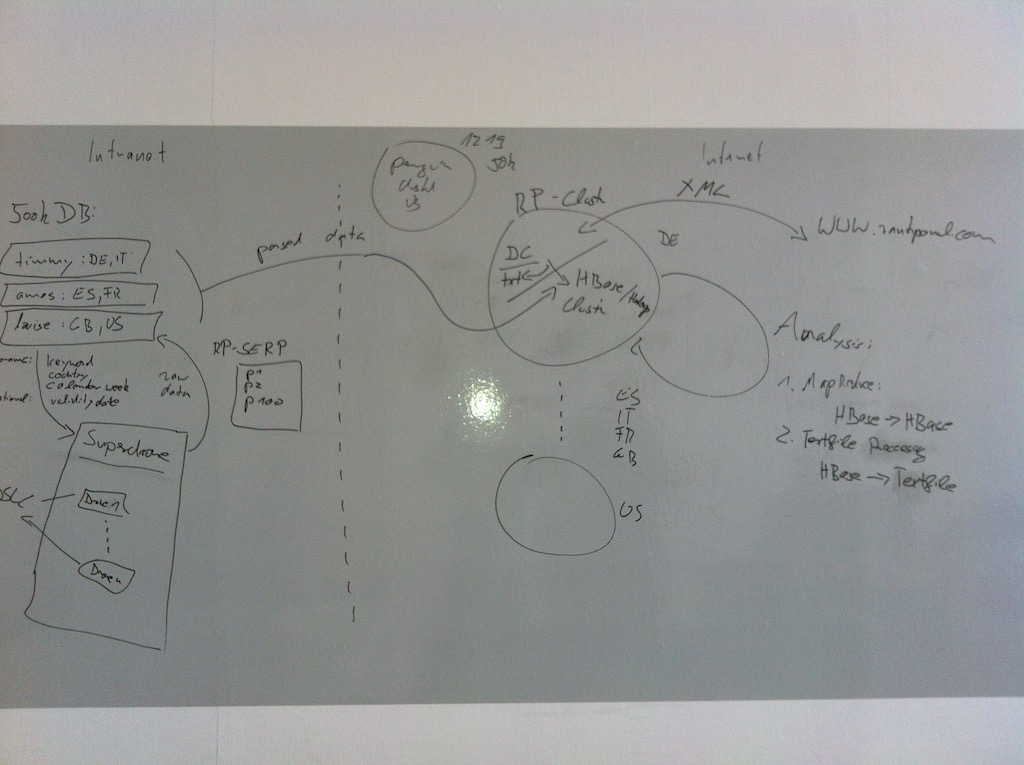What I've learned from running an early stage startup

I have recently stepped down from my position as Director of Rankpanel. Boy, did I learn a lot! I’m very thankful for Chris and the Rankpanel team to have given me the opportunity to lead that project. In this post I’d like to sum up the 5 most important learnings from running an early-stage startup.
Product is everything
In the beginning product is EVERYTHING. All that matters is how fast can you ship a product that your customers love. It’s not about pricing, marketing, or anything else, it’s only about the product. As such, only 2 things matter:
- Having an effective mechanism of feedback to determine how well you do
- Having a great team that has the ability to produce a product that fits the market in the right time
The team, it’s all about the team
The team is literally THE driving engine of any startup. At Rankpanel we’ve started with some members of the initial team who were not up for the task. These people, while I respect and value all of them, were not startup, at least not early stage, material and we would have fared better with a different initial team. In the beginning look for:
- Motivation and dedication (see WHY YOU DO IT below)
- People who have the potential to become better than you yourself ever could, meaning that they possess domain expertise & skills AND have the willingness and ability to learn
Once you’ve got your A-Team together and you guys are hustling, show some work ethic and empathy! Easy things like buying your whole team a beer on a Friday or having a team breakfast can really change the mood of everyone. Do it and care for all your team members! Motivation and dedication is all you have in the beginning.
Also, once you’ve committed to a team, you’ve got to trust them. Let them do what they’re doing - you’ve picked them for a reason. Micromanagement is evil! Don’t forget that - ever!
Be transparent
Share metrics with the whole team on a weekly basis in a dashboard type report that is easy to understand and answers the following questions:
- What is this about? The relevant metrics for the business must be clearly visible and understandable for the whole team
- Where do we stand? The weekly changes must be clearly visible, important changes must be highlighted and put into perspective
- Where do we want to be? Goals must be clearly visible
- The ‘WHY’s behind driving metrics and goals must be accessible for all team members at all times, e.g. in an internal wiki
Treat your customers like family
I see a lot of companies that treat their customers like they are nothing more than money-making objects. For these companies, customers only exist in terms of numbers in reports. Their businesses are built on the premise that customers don’t realize they are getting screwed when they buy from them.
What I’ve also observed is that these companies do not stay in business long (which does not mean that they’re not successful in raising money or generating great returns for their investors).
They get investment money, because the numbers are right. But they lack goodwill, brand, authenticity - all the thing that count in the long-term and are so hard to measure. Customers are the most important part of any successful business.
- This is why customers have to be included early on => launch early and learn
- This is why their voice must be heard and considered in decisions => engage in customer development, and ask for feedback
All this to finally reach the most important goal: PROVIDE REAL VALUE TO YOUR CUSTOMERS.
Know your engine
Every startup needs an engine of growth. But after growth comes retention. Sticky growth prolongs the runway of startups. Real value drives retention and involving customers let’s you recognize it. There are also tactics that you can use to drive retention. Pick one for the beginning and build on it:
Knowing your engines means that you know their drivers. Picking the correct set of KPIs to focus on is instrumental for success.
Focusing on vanity metrics or just things that won’t have the most impact can be the decisive difference that can kill your startup. As mentioned above, though, you should keep in mind that some of the most important things cannot be well measured.
Marketing and spirit: Focus not on what to do, but WHY YOU DO IT
OK, confession time: This is something we were really bad at in the beginning but got continually better.
Marketing features and things your product does is not what will prevail in the long-term. Products change, features come and go, UI evolves but one thing must not change (but it can evolve) and this is your vision. It is the goal you want to achieve with your company. Your team’s dedication to the market.
This is the reason for the WHY being so important. The root cause for your actions can motivate customers and your team. It is a source of inspiration that goes far beyond features. It allows you to sell your idea and create a movement.
Let your stakeholders buy into your spirit and receive value from simply being part of your cause!
I think this sums it up nicely. I’d love to hear what you think about these things on Twitter.